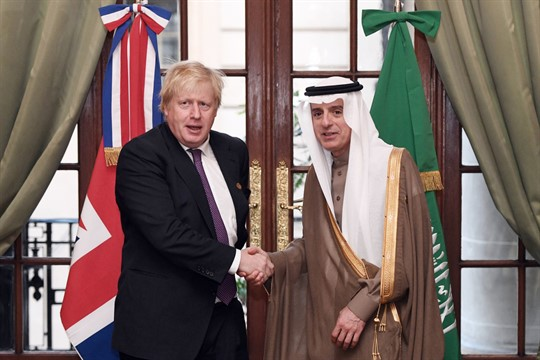Since the 2016 Brexit referendum, the United Kingdom has been trying hard to figure out its new position on the global stage. Not without a certain degree of nostalgia, the ruling Conservative Party has put forward the idea of “global Britain,” reviving old imperial networks and repositioning London at their center.
Arguably, nowhere are the contradictions of this idea more evident than in the U.K.’s ties with the Arab states of the Persian Gulf. There, London is struggling—and often failing—to find an advantageous balance between projecting the gravity befitting a global power and retaining the favor of its autocratic partners in the region, particularly Saudi Arabia.
In July, the British Foreign Ministry officially sanctioned 49 individuals and organizations from four different countries under its Global Human Rights Sanctions Regulations, an analogue to the U.S. Magnitsky Act.
They included 20 Saudis involved in the killing of journalist Jamal Khashoggi at the Saudi consulate in Istanbul, in 2018. Among the more prominent designations were Saud al-Qahtani, a disgraced but still close adviser to Saudi Crown Prince Mohammad bin Salman; Ahmed al-Asiri, the former deputy head of military intelligence; Salah al-Tubaigy, a forensic scientist who was on the scene when Khashoggi was brutally murdered; and Mohammed al-Otaibi, Saudi Arabia’s consul general in Istanbul.
Britain’s list of offenders was much longer than Riyadh’s. In its final verdict last week, a Saudi court reduced the sentences of eight unnamed defendants who had been convicted of murdering Khashoggi, precluding any accountability for senior Saudi officials linked to the crime.
 Eurasia Press & News
Eurasia Press & News




